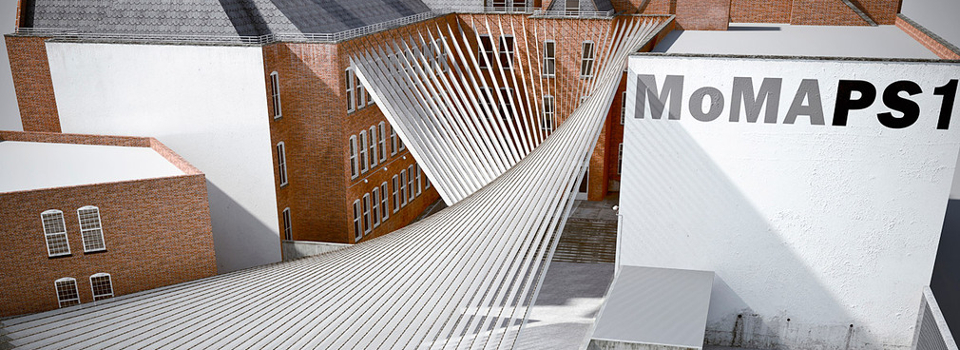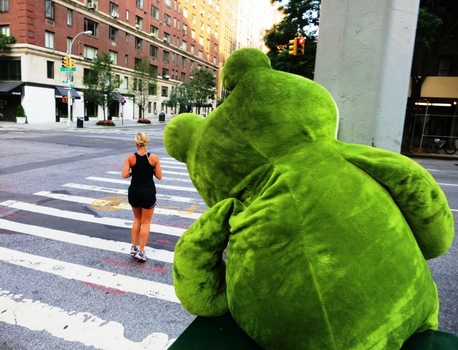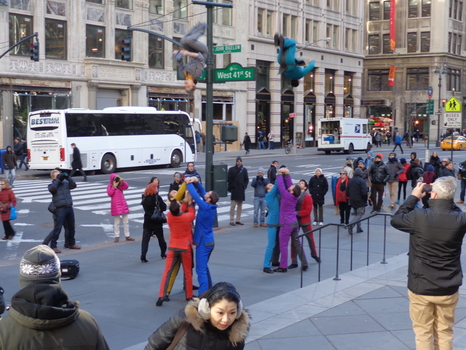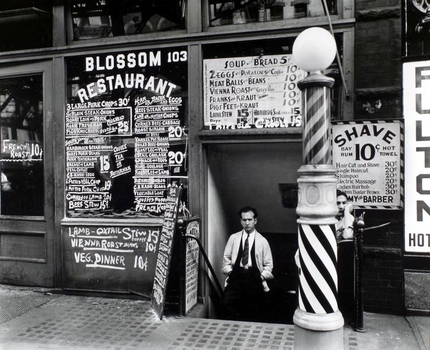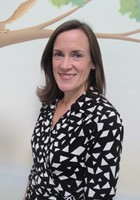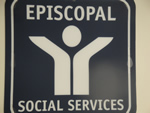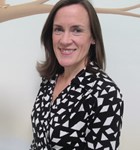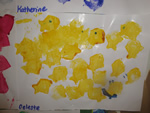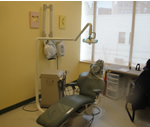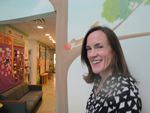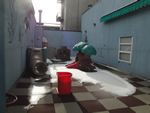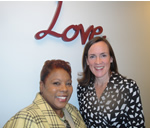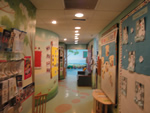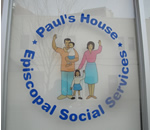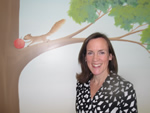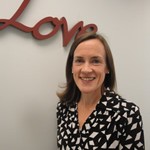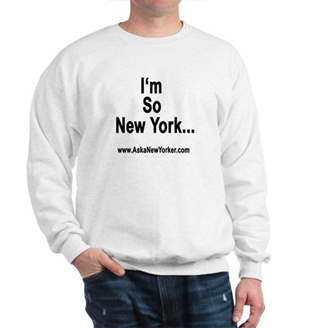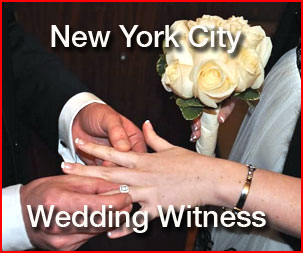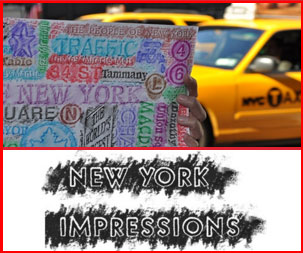Ask a New Yorker: Hello Elizabeth McCarthy, Top of the morning to you. Have
you ever been to Ireland?
Elizabeth: I have, though not in a long time. It was about 1990 the last time
I was there.
Ask a New Yorker: Did you kiss the Blarney Stone?
Elizabeth: I did kiss the Blarney Stone, despite all the rumors.
Ask a New Yorker: What’s the point, good luck?
Elizabeth: I think it is good luck or the gift of gab, or just a photo opts
for your average teenager, which I was at that point.
Ask a New Yorker: Let’s talk. Where am I?
Elizabeth: We are in the South Bronx, called the Mott Haven section. This building
is called
Paul’s House. Paul Moore was a former Episcopal bishop of New York
He really committed his whole career to social justice. So this center is about
trying to give people a fair shot in life.
Ask a New Yorker: I like this Paul Moore.
Elizabeth: We run a number of programs here. The largest of which and is most
visible is our Early Head Start Program. This is for kids who come from low
income families who can be enrolled in basically preschool from the age of six
months onward. Test show this makes them on a level playing field with other
kids. So it really takes out the effect of the poverty when they start school.
So they’re in a much better place to start school than they would have
been if they didn’t have programs like this. The nice thing about it is
that we start with pregnant woman. We go visit them in their homes while they’re
pregnant to talk to them about prenatal care and health and even how to take
care of themselves after they have the baby, things like postpartum depression,
knowing that they know what to look for. But also things that they can do with
their baby from the beginning to stimulate their development. So we really are
trying to start even before the baby is born trying to give them a fresh start
in life.
Ask a New Yorker: How many children are enrolled on any given day?
Elizabeth: We have seven classrooms that are funded through Head Start, and
then the Robin Hood Foundation, who are very committed to early childhood, saw
what we were doing and said we want to give you another classroom of it to expand
your capacity. So they paid for one classroom for transitional kids between
ages two and three to kind of bridge the gap from one grade to the next.
Ask a New Yorker: Do you have children?
Elizabeth: One five-year-old son. So I certainly appreciate the importance of
a program like this.
Ask a New Yorker: Where do you live?
Elizabeth: I live in lower Manhattan.
Ask a New Yorker: Lower, lower?
Elizabeth: Low, low like you can see the Statue of Liberty. Our main office
is in mid-town Manhattan, Penn Station area.
Ask a New Yorker: Can one do volunteer work for Paul’s House?
Elizabeth: We rely a lot on volunteers, for small things around the holidays.
I shouldn’t even say small things because the women, who actually sponsored
the holiday party here, brought presents for all the kids, wrapped them up.
We had a Santa who handed them out. That’s an example of a one-time way
to volunteer, but we also have mentors or people who come to classrooms to various
of our sites around the city and read to kids. Depending on what kind of time
and interest people have we have a vast array of volunteer services.
Ask a New Yorker: What are you reading, what’s by your bedside?
Elizabeth: What am I reading right now? I just finished Someone Knows My Name
which is a book about awoman who was kidnapped from Africa and became a slave
and her experience working for the British through the Revolutionary War.
We meet a colleague of Elizabeth: Hello what’s your name?
Helen: My name is Helen Davis. I’m the Director of the Episcopal Social
Services Early Head Start Program.
Ask a New Yorker: I love the art work.
Helen: As far as the murals are concerned, during the planning stages we decided
we wanted to transform this facility into something different, something that
when the parents and the families came in, the children would really feel immersed,
and something that was very different from what they experienced on a day to
day basis. For the most part, most of our parents live in poverty and some in
gross poverty. For you to even say when you came in and felt, ’love’
that’s exactly what we wanted. We wanted that type of experience with
children and families. When they get off that elevator….
Ask a New Yorker: I do feel the love. It feels safe and loving….S&L
Elizabeth: Another service that is housed in this facility is our Foster Boarding
Home Program. We serve about 500 kids anywhere from birth to age 21 who are
either temporarily or permanently going to be adopted by somebody and are in
foster care right now. We have a full service health office here with a full
time pediatrician and a pediatric dentist. We work there with both the foster
boarding home kids as well as the Head Start kids. So we do have the ability
to really see anybody and give them the kind of medical care that most of them
have never really gotten on a consistent basis in their life until now.
Ask a New Yorker: Is music incorporated into the philosophy of the program in
any way?
Helen: Most definitely. Matter of fact you just missed our movement and music
specialist who is also a specialist in baby sign. She comes in once a week and
does training with the individual class rooms were teaching the baby’s
baby sign, the family baby signs.
Ask a New Yorker: Baby sign language?
Helen: It’s baby sign language. It’s pre-verbal. It’s a universal
language that babies, regardless of what their language is, are now able to
communicate with their teachers and one another. It’s very simple. It’s
not as intense as American Sign Language. But simple things like, I want my
bottle. So the parents are learning it now. They can also use it in the home
and children are using it in the classrooms.
Ask a New Yorker: As I’m walking around the facility, we just passed a
family; I’m feeling the intensity of the situation at hand, the sad difficult
realities of life. Yet, it’s evident at the same time the hopefulness
that your service is providing. I’m not sure what the question is. It’s
very emotional.
Elizabeth: It can be very difficult. But it’s also one of the reasons
I love this work. I know these things exist anyway. And actually the more I
see them the better I think I can manage the organization. I think the days
when I’m just in my office and I don’t see a kid or don’t
see a family you lose touch a little bit for why where really here, so I enjoy
going out to the programs a lot to really remind myself why we’re doing
what we’re doing. Yes there are a lot of really sad stories that come
through our doors. I mean kids who have been through things that nobody should
ever have to go through and for them their only six years old. But from that
we get a lot of really good endings. And we get to give kids a second chance
or a third chance or a fourth chance. So I think when you see those success
stories it gets you through the bad times and you remember that there is really
a lot of amazing work that happens throughout all of our sites Episcopal Social
Services.
Ask a New Yorker: Does Paul’s House have a motto?
Elizabeth: Transforming the lives of New Yorkers and communities. That’s
really how we see our work. We start with people where they are and give them
the help they need to help them have some success in their life.
Ask a New Yorker: Thank you Elizabeth. You definitely kissed the Blarney Stone!

